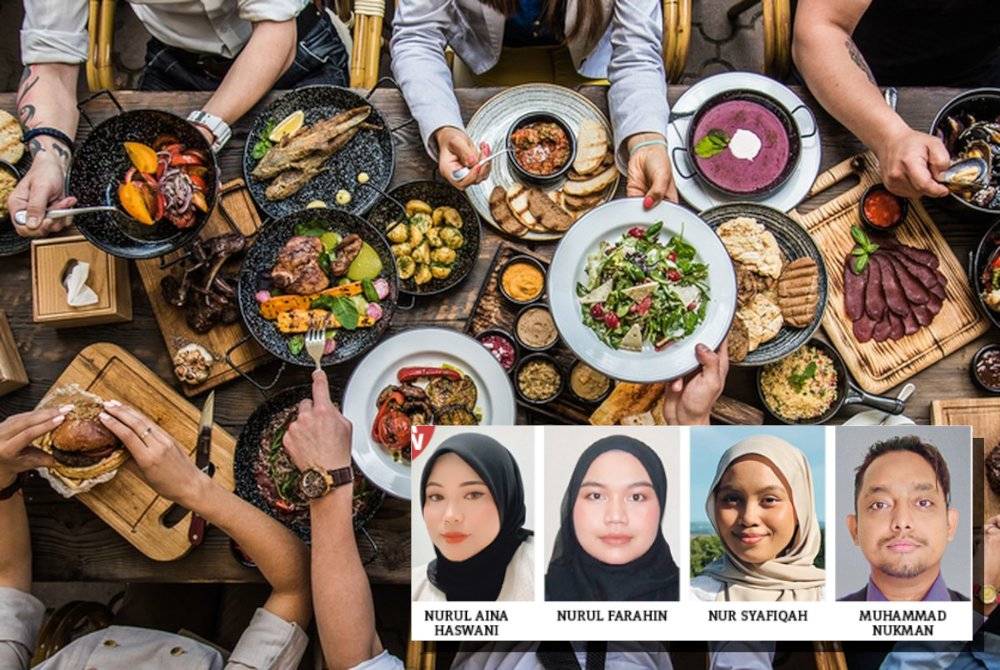Halal issue: 'Don’t just follow what’s viral, you may regret it later'
A survey by Sinar found that the general public agrees on the importance of avoiding questionable or ambiguous food and taking personal responsibility for ensuring that the food they consume is halal.
NURATIKAH ATHILYA HASSAN , AISYAH BASARUDDIN , NOR SYAMIRA LIANA NOR ASHAHA
SHAH ALAM - Muslims should avoid visiting restaurants or eateries that merely display ‘pork-free’ or ‘Muslim-friendly’ signs without halal certification, as concerns remain about whether the ingredients used and preparation methods comply with Islamic law.
A survey by Sinar found that the general public agrees on the importance of avoiding questionable or ambiguous food and taking personal responsibility for ensuring that the food they consume is halal.
Administrative clerk Nurul Aina Haswani Abdul Rahim, 25, expressed doubts about restaurants that display ‘pork-free’ signs, stressing that such signs do not guarantee that other ingredients are halal.
"What’s even more concerning now is the influence of social media trends, where people flock to places claiming to serve delicious food without knowing the halal status of these restaurants.
"Social media has a huge influence, and unfortunately, some people neglect religious rulings just to follow trends.
"Be smart when choosing where to eat. Research the restaurant or check its halal status on Jakim's official portal. Don’t just follow what’s viral—you may regret it later," she said.
Private sector employee Nurul Farahin Sazali, 24, also avoids restaurants that only display a ‘Muslim-friendly’ logo, stating that she is not confident about the halal status of the ingredients used, especially the method of slaughter.
She added that some restaurants hire Muslim staff to attract Malay customers, which creates a false sense of security for some.
"The mindset of assuming that 'if the staff are Malay, the food must be halal' is worrying. Such assumptions can mislead people.
"It’s better to refrain from dining at places that raise doubts," she said.
Veterinary assistant Nur Syafiqah Daming, 26, highlighted instances of eateries displaying ‘pork-free’ signs while still serving alcoholic beverages.
"As long as there’s no certified halal logo, Muslims should look for other places to eat. This matter shouldn't be taken lightly," she said.
Civil servant Muhammad Nukman Md Rodzi, 25, believes that if someone feels confident about the food, they can enter the restaurant.
However, he cautioned restaurant owners to ensure that their ingredients and kitchenware are free from pork or lard contamination.
"Many restaurants, especially in Borneo, are not owned by Malays and lack halal certification.
"Ultimately, it depends on the individual’s confidence, but they should make sure the restaurant truly doesn’t serve prohibited ingredients like pork or alcohol," he said.
Former Religious Affairs Minister Datuk Seri Dr Zulkifli Mohamad Al-Bakri, in a post on the Maktabah al-Bakri blog, stated that it is haram for Muslims to consume meat-based food from non-Muslim-owned restaurants that claim to be ‘pork-free’ unless it is confirmed to be clean, halal, and free of alcohol.
"This is a precautionary measure, as most non-Muslim-owned restaurants cannot guarantee cleanliness or the absence of impure substances.
Avoiding restaurants with uncertain halal status aligns with religious recommendations to avoid ambiguity," he said.
Prioritising Halal Certification
The absence of a halal logo does not mean that Muslims are forbidden from eating at such establishments.
However, Universiti Kebangsaan Malaysia (UKM) Islamic studies faculty's industry and community networking deputy dean, associate professor Datuk Dr Mohd Izhar Ariff Mohd Kashim advised the public to prioritise restaurants that display halal certificates.
He stressed that the presence of a halal certificate increases Muslim consumers' confidence, as it ensures the restaurant or product has undergone thorough auditing by Jakim, state Islamic religious departments, or state Islamic councils.
"This is why the Malaysian halal certificate is highly respected by companies and restaurants, whether Bumiputera or non-Bumiputera-owned.
"For restaurants without halal certification that use labels such as ‘no pork, no lard’ or ‘Muslim-friendly,’ these terms are more common in countries with a Muslim minority, like Korea and Japan.
"In Malaysia, however, people place greater trust in halal logos and certifications.
"While it’s not wrong to eat at those establishments, as much as possible, we should choose restaurants with halal certification," he said in response to recent concerns about dining at non-Muslim-owned premises labelled as ‘no pork, no lard’ or ‘Muslim-friendly.










